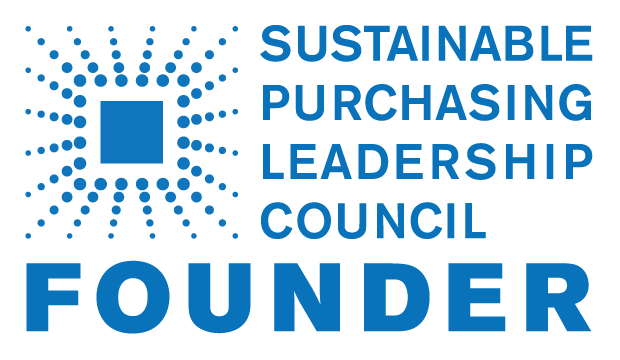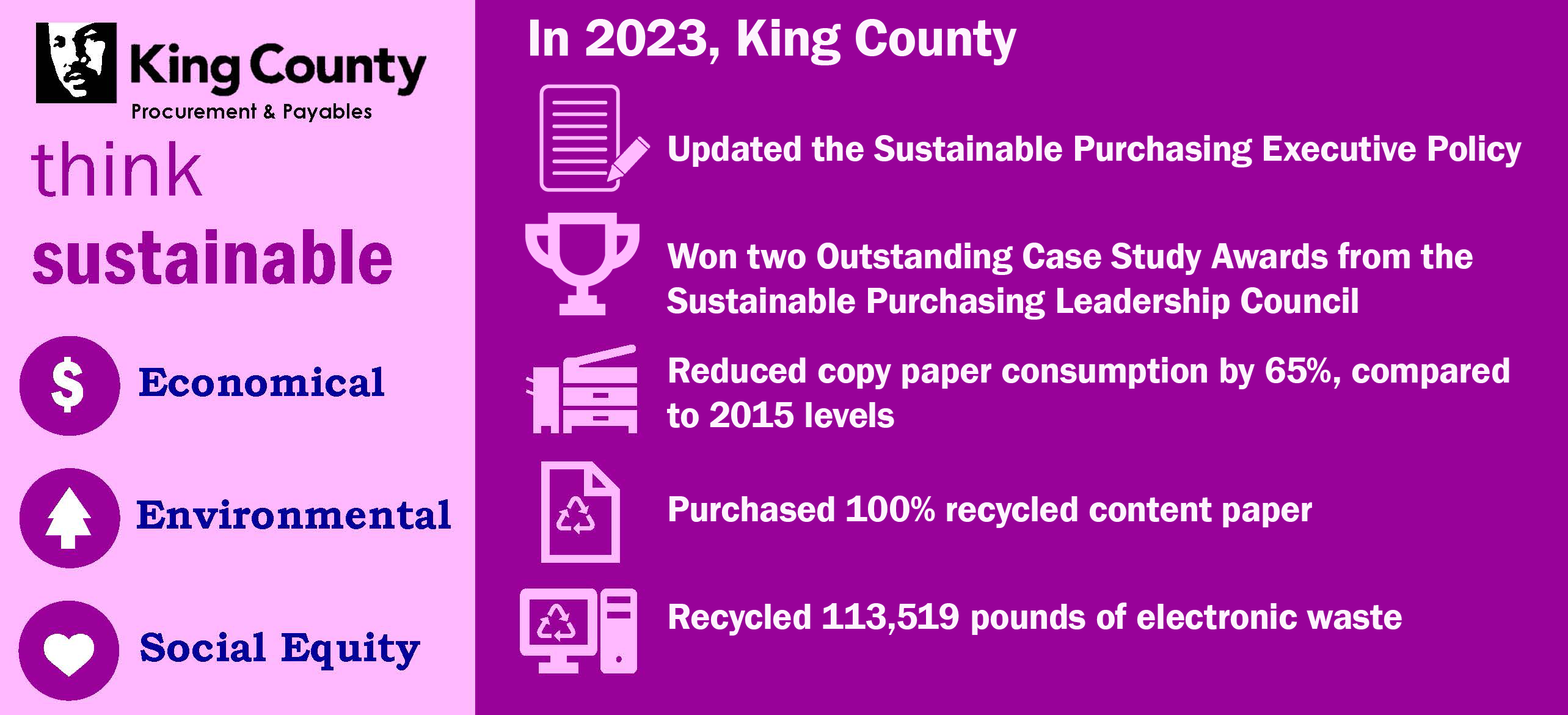Sustainable Purchasing Program
About our program

King County’s policies require county agencies and their contractors to buy “sustainable” products and services which means prioritizing those that provide the most environmental, social, and economic benefits.
The Sustainable Purchasing Program gives staff guidance and tools, including the Sustainable Purchasing Guide. It explains what to look for in products and services, required environmental standards and certifications or “ecolabels”, and contracts already available for use with awarded sustainable options.
Sustainable Purchasing Guide
This guide balances economic, social, and environmental purchasing considerations. Search the Guide
There are 5 steps for sustainable purchasing:

Ask yourself...
- Can you avoid the purchase?
- Can you reuse or repurpose what you already have?
- Can you find it secondhand at Surplus?
Check the Surplus warehouse (707 S. Orcas St) or add items to your wish list. Email a href="mailto:kcsurplus@kingcounty.gov" id="kcsurplus@kingcounty.gov">kcsurplus@kingcounty.gov. You’ll be notified if the item arrives. These items are free.
Need furniture? Try the Facilities Management Division’s "New to You Market" pilot for used furniture that can be redistributed to you for free or low cost.
If you must purchase...
- Check for green contracts (even if it costs less than $10,000). We've already negotiated a great deal!
- Don't see what you need? You can "piggyback" off a contract from another public agency or national cooperative group to save time.
Look for these environmental attributes:
- Ecolabels – Ecolabels tell you if a product is certified as having met environmental standards.
- made with recycled content
- recyclable/compostable
- reusable or durable
- low: toxicity, VOCs, energy, or water
- biobased
- PFAS free
Look for small and minority and women owned businesses:
Small Contractor and Suppliers (SCS) – King County certification program
Minority and Women Owned Business Enterprises (OMWBE) – certified by the Washington State Office of Minority and Women’s Business Enterprises (OMWBE)
Look for King County’s existing recycling and waste management contracts
- Reuse items, or surplus if the products are in working areas
- Compost and recycle
- Recycle, or take-back with supplier/manufacturer
- Dispose of hazardous waste correctly
- Use the handy lookup tool "What Do I Do With...?" to determine proper disposal for common items.

 Translate
Translate